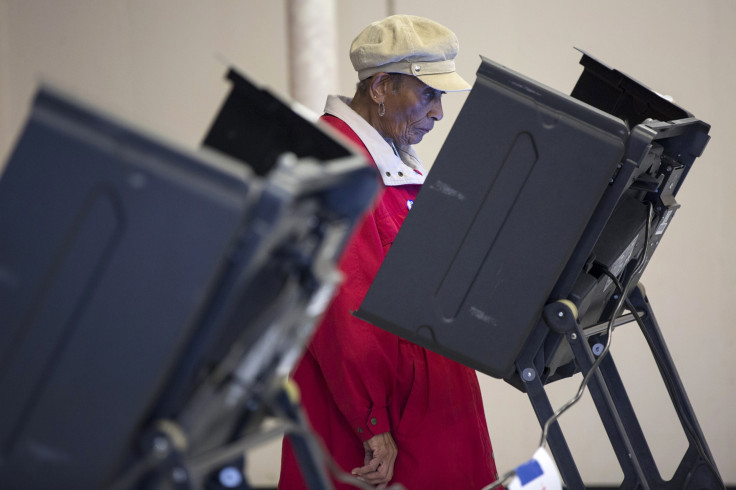In Ferguson, Voter Turnout Surge Is A Sign Of Realized Political Power Among Michael Brown Case Protesters

After drawing international attention with civil unrest sparked by Michael Brown’s fatal shooting last year, residents in Ferguson, Missouri, turned out in unprecedented numbers Tuesday for municipal elections, proving they could turn protests into political power, candidates and elections activists said. The unusual interest in Ferguson's traditionally sleepy elections means that for the first time in the city’s 120-year history, the mostly white local government was poised to become more representative of the largely black community.
The contest pitted experienced candidates against a slate of newcomers who demanded an end to racial discrimination after Brown, 18, was killed by white police officer Darren Wilson on Aug. 9. In the end, two black candidates vying for seats on the six-member panel were elected to the city council. Unofficial results showed a turnout of 30 percent, more than double the portion of registered voters seen in elections in previous years.
“People were very inspired to make change,” said Lee Smith, a longtime resident of Ferguson who lost his city council bid to another black candidate. “We’ve hammered home the need for change throughout our ‘get out the vote’ effort, and people responded to it very well.”
A recent federal investigation of Brown’s shooting death revealed city officials and the police force had adopted a revenue-driven law enforcement strategy of racial profiling and discrimination against African-Americans. Over the last two years, African-Americans accounted for 85 percent of drivers involved in police traffic stops, 90 percent of traffic tickets, 93 percent of police arrests and 88 percent of police use-of-force cases, according to a Justice Department report. In the fallout of the Department of Justice’s investigation, the city’s manager and police chief resigned.
The new city council will be tasked with replacing the interim manager and police chief. Council members were also poised to deliberate on several reform recommendations from the Justice Department report, including hiring new officers, offering cultural sensitivity training and reforming community policing efforts that do not target minorities.
Local and outside volunteers, such as the Urban League of Metropolitan St. Louis and the Organization for Black Struggle, aided the surge in voter turnout. On Tuesday, the Urban League and council campaigners offered Ferguson voters transportation to polling places throughout the city.
Robert Hudgins, a white city council candidate who lost his bid on Tuesday, expressed disappointment that he didn’t fair better amid higher turnout. “I’m disgusted,” said Hudgins, who had aligned himself with the Brown protesters and the local Democratic establishment. “Turnout tripled tonight and I still lost. It doesn’t make any sense to me at all.”
Brian Fletcher, the candidate who beat Hudgins, had name recognition among voters after 28 years of experience as an elected official in the area, according to the St. Louis Post Dispatch. “I was being portrayed by the media as an establishment candidate and the old guard,” Fletcher said following his victory on Tuesday night. “Experience isn’t a bad thing. It can be a good thing.”
Smith, who has lived in Ferguson for more than 27 years, said a polling place in his ward had counted over 400 people who had voted at Our Lady of Guadalupe Church polling station. “That’s almost 200 percent higher than it was in the last election,” he said.
© Copyright IBTimes 2024. All rights reserved.






















